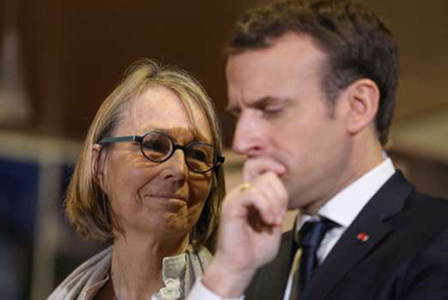Education to media, fight against fake news: where are we in France and what role is there to play for popular education organisation?

By Eve-Laure Gay, Ligue de l’enseignement – FRANCE (April 2018)
The issues of fight against “fake news” and media education have been in the spotlight in France in the recent months through two main initiatives from the government.
First, a law on “fake news” is in preparation and should be discussed by the Parliament in May. The French president, Emmanuel Macron, was a victim of fake news during the 2017 presidential campaign, and wants to demonstrate his voluntarism on the issue. Although the law has not been passed yet, the main measures have been revealed through the media in March. The proposed text seems to focus mostly on the regulation of “fake news” in time of electoral campaigns. It would enable a judge to close a social media account, or stop its activity, during an election campaign if the news it relays are “fake”. It is important to highlight here, that so far the concept of “fake news” is not very precise and the criteria to classify a piece of information as fake news are not clear yet. In addition to this measure, the law would increase social networks’ duty to cooperate with the authorities and be transparent about the content they issue, when it is related to current affairs and reveal the identity of the organization requested for the dissemination of the incriminated content and the amount paid. Finally, the Audiovisual National Council (Conseil Supérieur de l’Audiovisuel, CSA) would be given a stronger power towards channels owned by/linked to another State.
If these measures are confirmed, it is clear that this new piece of legislation will have a rather narrow perimeter, and will not tackle the crucial aspect that education of all citizens and mostly children and young people to the mechanism of fake news and the deciphering of information and its media (whether traditional or digital).
When it comes to this side of the problem, non-formal and popular education organizations, such as la Ligue de l’enseignement, partner of the REACT project, have a crucial role to play, with the political and financial support of the public authorities. To this intent the Ministry of Culture has presented recently its “Plan for Education to Media and Information” (EMI) which includes the creation of an online platform, developed by public audiovisual stakeholders (France Television, Radio France, Arte…) and a 6 million euro budget for the development and implementation of projects by educational actors. The Center of Education and news media (Centre de Liaison de l’Enseignement et des Médias d’Information) is a pioneer and leading player and has developed several pedagogical tools both addressed to teachers3 (factsheets on topics such as creating a newspaper in school) and to families (guide on the use of internet)4.
The money is welcome but does seem low compared to the ambitions of the government. Moreover, and grassroot actors have not waited for this umpteenth “Plan for EMI” to be announced to implement educational projects and work with children and youngsters on the deciphering of information. At la Ligue de l’enseignement, many initiatives have been carried out in the recent years, working with pupils through role-playing, analysis of information and interpretation of images. This is a meticulous work that has to be done group by group, class by class, individual by individual. But la Ligue is by far not the only one to act. Information professionals (journalists, photographs, reporters) are also engaged, for example through the organization Entre les lignes, which gather over 100 professionals all over France and organize workshops
One more step could and should be taken by public authorities in order to optimize the impact of Education to Media and Information: it needs to be formally included in the curricula, from the beginning of the school pathway and teachers should be properly trained to this subject. This is a sine qua non condition to the fight against online hate speech.
One can only be pleased that both civil society and public authorities are working in the issue of Education to Media and Information in France. Time will reveal if the initiatives described above are implemented in synergy with other actors in order to ensure a long term vision and work that promotes a holistic approach of the subject and puts an end to “plaster” initiatives which only cover the extent of work to be accomplished.
Sources: